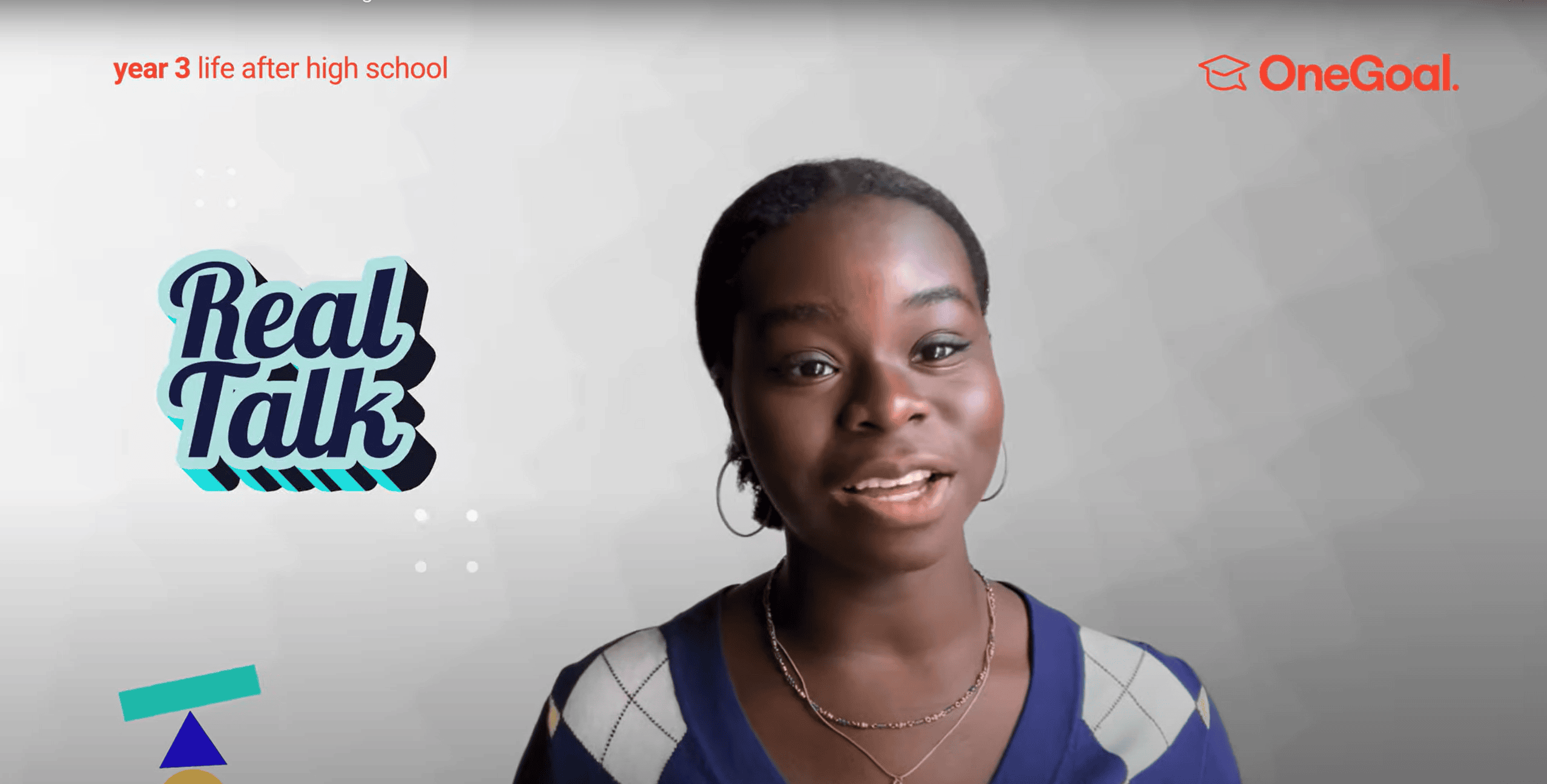GradPlan
This free site is full of resources, tools, and information to help you navigate life after high school.
If you don’t remember your password, try to log in with your email, and then click “Forget your password” and answer the security questions. Reminder: your email is likely in the format of firstname.lastname@onegoalgraduation.org.
If you’re still having trouble, please contact your Program Director (PD) first for support.
We offer an Enrollment Grant to support OneGoal students in their postsecondary journeys via funding for supplies, housing, books or other post secondary program expenses. You can find more information on the Enrollment Grant page.
Unfortunately, we do not have grants available for students who are not part of the OneGoal program. However, we recommend the following resources for potential scholarship opportunities:
Our Enrollment Grant supports OneGoal students in their postsecondary journeys via funding for supplies, housing, books or other post secondary program expenses. You can find more information on the Enrollment Grant page.
If you are looking to receive financial sponsorship from OneGoal for a project or organization (e.g., podcast, startup), we are not able to provide funding since we are a nonprofit organization.
Our organization supports students from specific high schools and districts with postsecondary and career preparation starting in the 11th grade. We work with our students to identify their best-fit pathway based on their unique needs. Unfortunately, we are not able to provide specific guidance on individual postsecondary programs.
Please follow these instructions:

This free site is full of resources, tools, and information to help you navigate life after high school.
This guide outlines the five steps you will take to choose a postsecondary path, followed by the five steps you’ll take to enroll. It includes links to helpful resources, important deadlines, and tips for success.
This tool converts financial award letters into formats that are easy to understand. You’ll be able to make informed decisions so you can pursue your dreams.
We’ve compiled some common questions about funding for postsecondary education.
To get federal and state grants, students need to first complete FAFSA to receive federal aid like Pell Grants. All US citizens and permanent residents who are enrolled in an eligible program at an eligible college/career/trade school are eligible to apply. For more eligibility requirements, see the Federal Student Aid website. If you are a student without a social security number, see our guidance on applying for state aid. You can use this FSA guide to help you to create your ID, and utilize this checklist as you complete your FAFSA. If your contributor does not have a social security number, visit the Federal Student Aid website to learn how to submit your FAFSA.
For state grants, students should check with their state’s higher education agency, look for state-specific deadlines, and then usually use their FAFSA information to complete those state applications.
Grants directly from institutions may also be available to eligible students, sometimes exceeding what students receive federally or through their state. This is especially true for private schools. To apply for these grants, which are often needs-based, fill out the FAFSA along with any other forms required by the institutions.
Students can apply for multiple grants! There’s the TEACH grant for students who plan to become teachers and serve in under-resourced schools along with grants for students whose parent or guardian died as a result of military service. Students with exceptional financial need may be eligible for the Federal Supplemental Educational Opportunity Grant (FSEOG) and applicants can expect to be awarded anywhere from $100 to $4000 per year.
Grant funds are awarded based on applications like the FAFSA, disbursed directly to the institution, applied to student accounts, and any excess refunded to the student. However it’s important to maintain your eligibility to continue receiving funds throughout your academic career.
Absolutely! Students can qualify for and receive multiple grants from various sources, which can really help lessen the burden of paying for their education. Applying early, meeting all eligibility requirements, and understanding each grant’s specific criteria are key to maximizing financial aid.
Grant funds are awarded based on applications like the FAFSA, disbursed directly to the institution, applied to student accounts, and any excess refunded to the student. However it’s important to maintain your eligibility to continue receiving funds throughout your academic career.